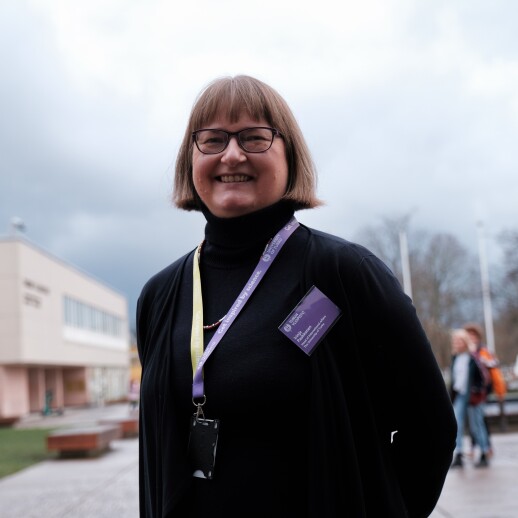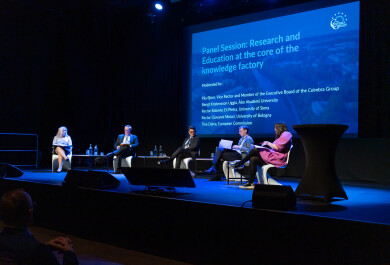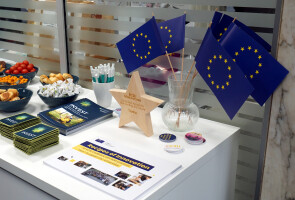The Collaboration in Research and Education seminar, which took place at the University of Turku at the end of October, brought together academic experts from various multidisciplinary fields.
The aim of the Collaboration in Research and Education seminar was to demonstrate examples of successful collaboration between Finland and African countries and to discuss the different issues that can either foster or hinder successful partnerships in research and education. In addition, the event provided the participants with an excellent opportunity for networking, knowledge sharing and discussing best practices in responsible and sustainable partnerships.
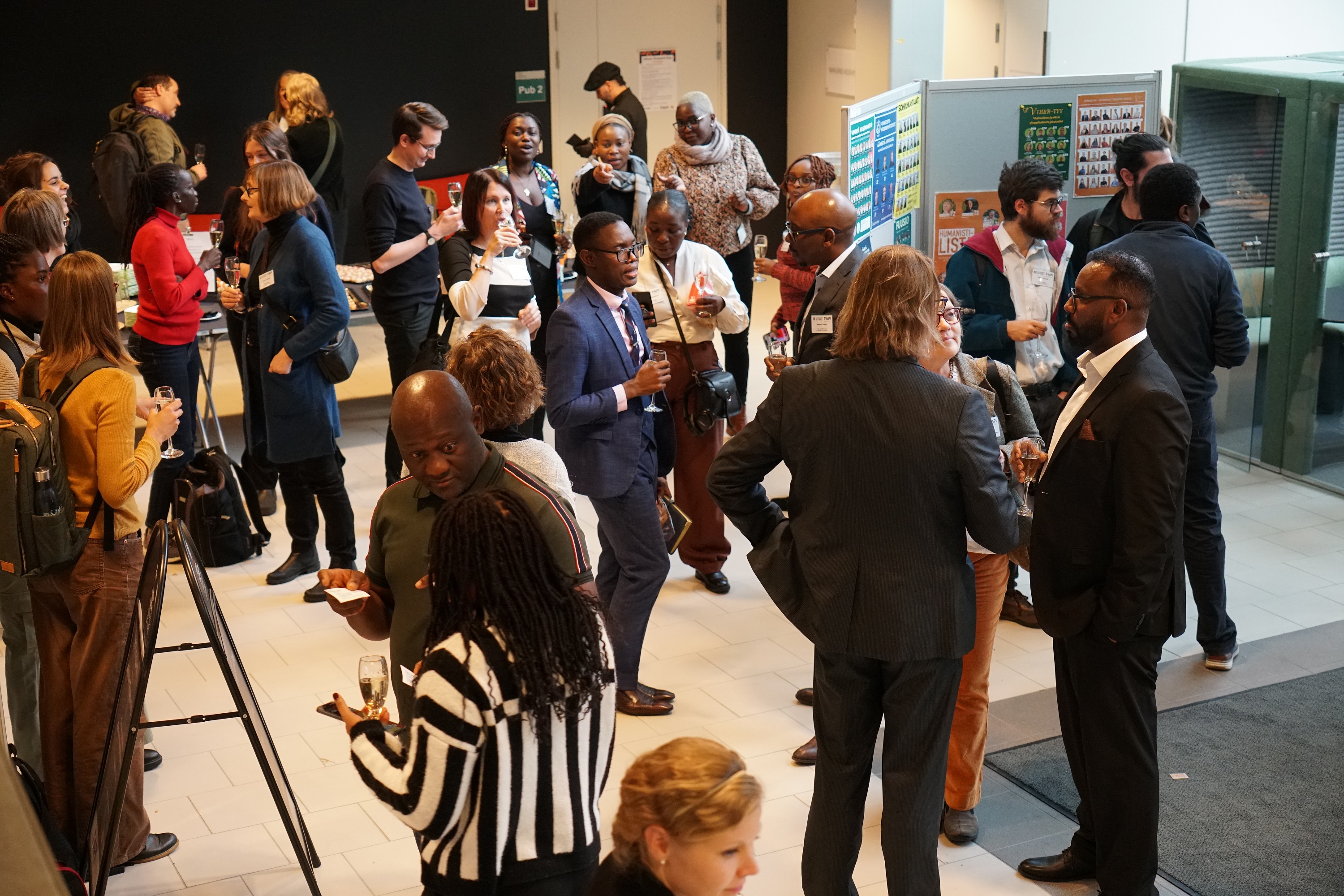
Lessons learned from successful collaborations
International Liaison Officer Satu Nurmi from the Partnerships and Strategic Engagement Unit at the University of Turku opened the event by welcoming everyone to the seminar and encouraging the participants to make most of the day that was designed for networking and exchange of ideas.
After the opening words, Professor Jussi Jauhiainen and Professor Niina Käyhkö from the University of Turku shared their experiences and views of collaboration between the Global North and African partners. Both professors have a long history of working in successful projects with African partners. In addition to successful experiences, both professors saw room for improvement in research and collaboration culture. According to Professor Jauhiainen, global scientific culture needs to become more inclusive and diverse in order to better engage African scholars and organisations with research related to Africa. Professor Käyhkö emphasised that collaboration should not focus solely on research and that understanding the connection between impact-driven research, education and local contexts is crucial.
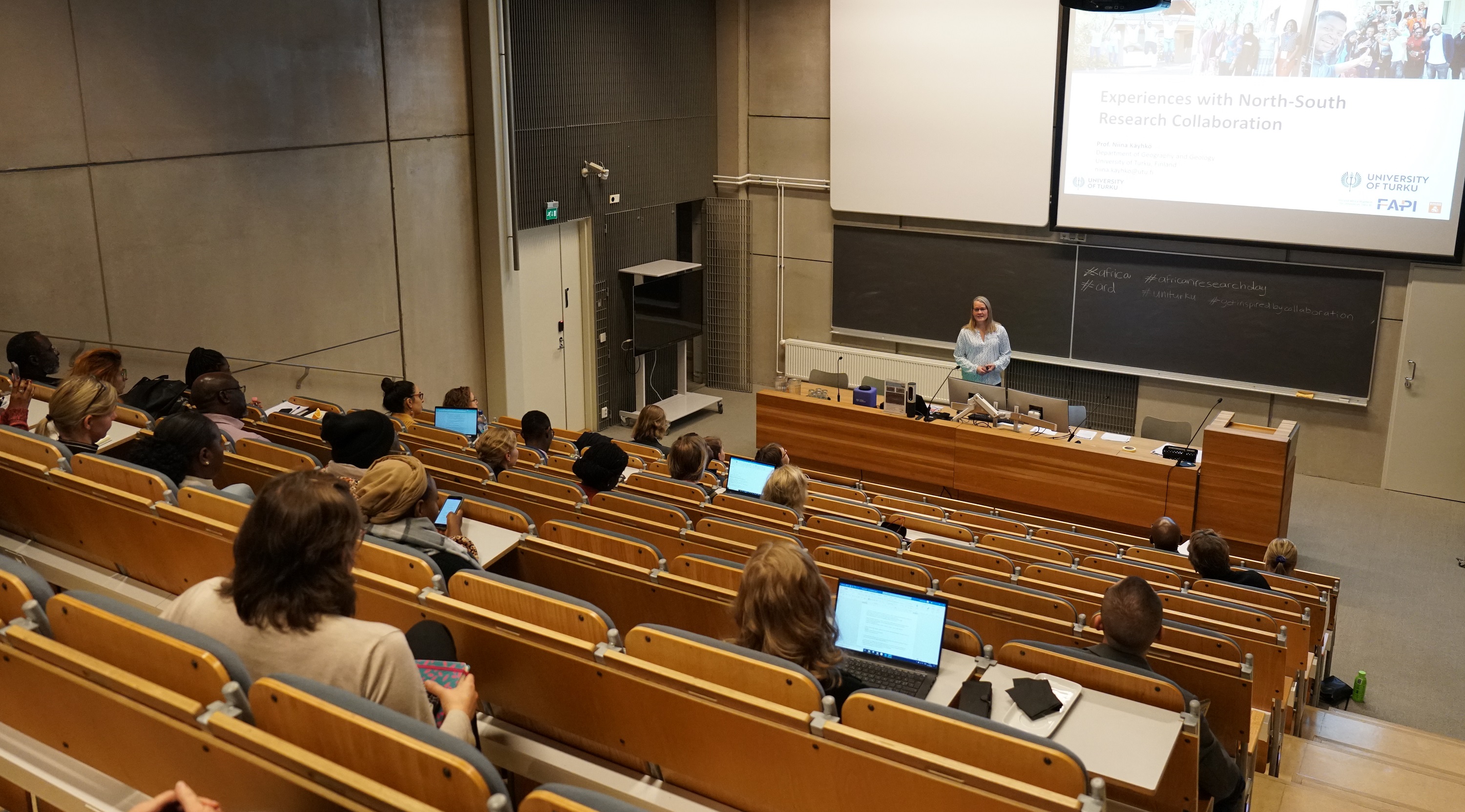
The original keynote speaker of the seminar, Professor Sarah Anyang Agbor from the University of Yaounde in Cameroon, was unfortunately unable to attend the first part of the event as her travel to Finland had been delayed. Nevertheless, Professor Agbor sent her greetings to the participants via video message before joining the event in-person later in the afternoon.
The participants of the event also heard various examples of different collaborative projects between partners in Africa, Finland and elsewhere. These projects included collaborations focusing on topics such as clean energy, sustainable food systems, healthcare solutions, resilient human settlements, social justice and community engagement. While the focus areas and partners of the projects varied, most speakers identified elements such as well-established networks, committed collaborators, access to accurate data, bottom-up approaches, co-creation, access to finance, technology uptake, and the involvement of women and youth as crucial for successful and impactful partnerships.
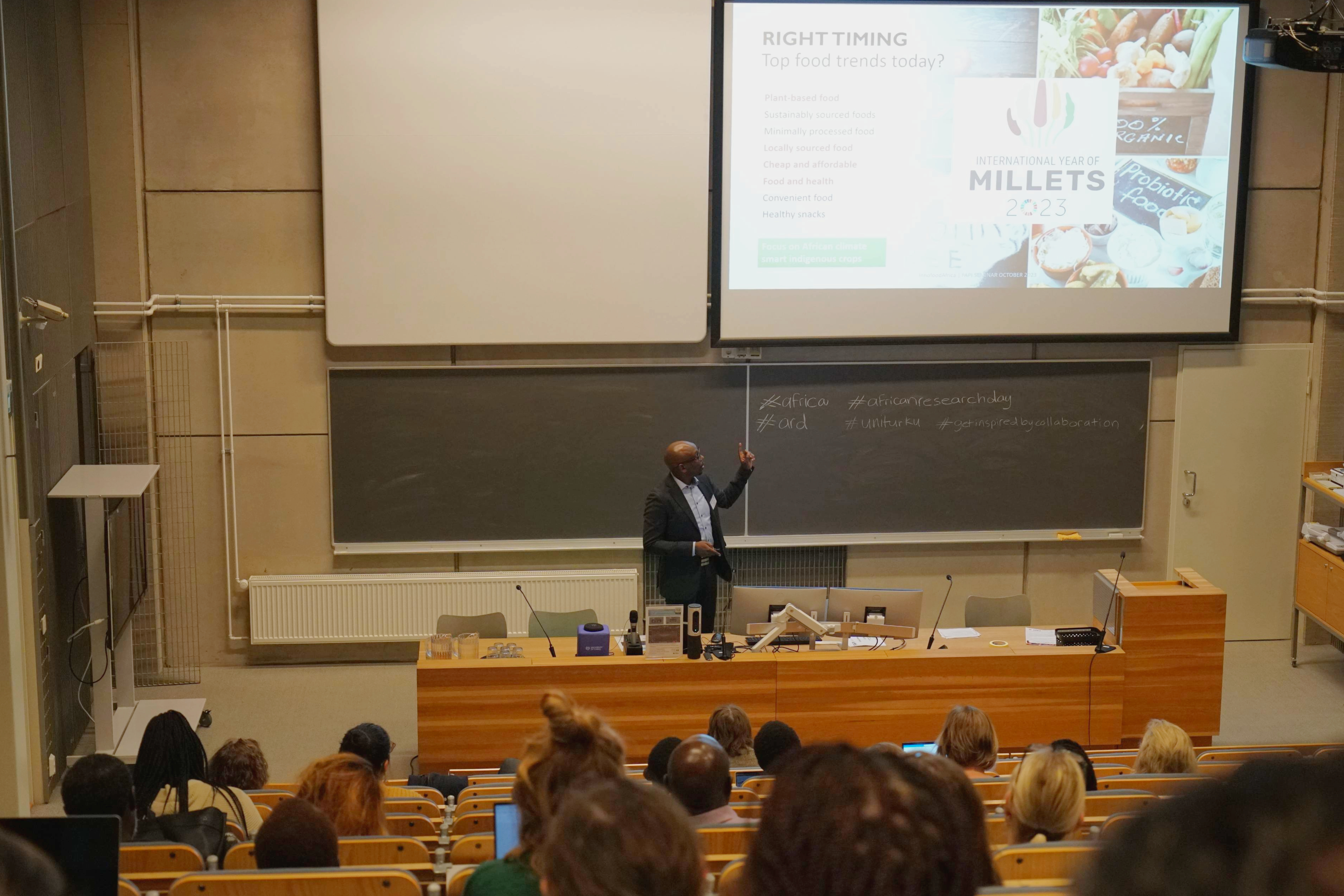
Collaboration is key but what kind of collaboration is needed?
The panel discussion “Research with Impact regarding Africa”, chaired by Professor Jussi Jauhiainen, delved deeper into the role of collaboration and what exactly constitutes good and effective collaboration.
The panellists all agreed that collaboration between different countries and between different organisations is essential. Doctoral Researcher Herman Lule from the University of Turku mentioned that collaboration is crucial because most global challenges require multidisciplinary and international cooperation and problem solving. This was evident in the case of COVID-19 pandemic which was a new situation that necessitated international collaboration. Associate Professor Tiina Kontinen from the University of Jyväskylä agreed that global crises and challenges require collaboration because the quality of the knowledge that is needed and produced benefits from different backgrounds.
Dr. Abdul-Gafar Oshodi from Lagos State University pointed out that while collaboration is fundamental, it is an elusive concept and people need to be concerned with what type of collaboration they are talking about and who benefits from it. Senior Lecturer Ritva Hyttinen from the Turku University of Applied Sciences mentioned that collaboration for collaboration’s sake is not necessarily purposeful. Collaboration should be seen as a living organ that needs to evolve based on the kind of future we want to create.
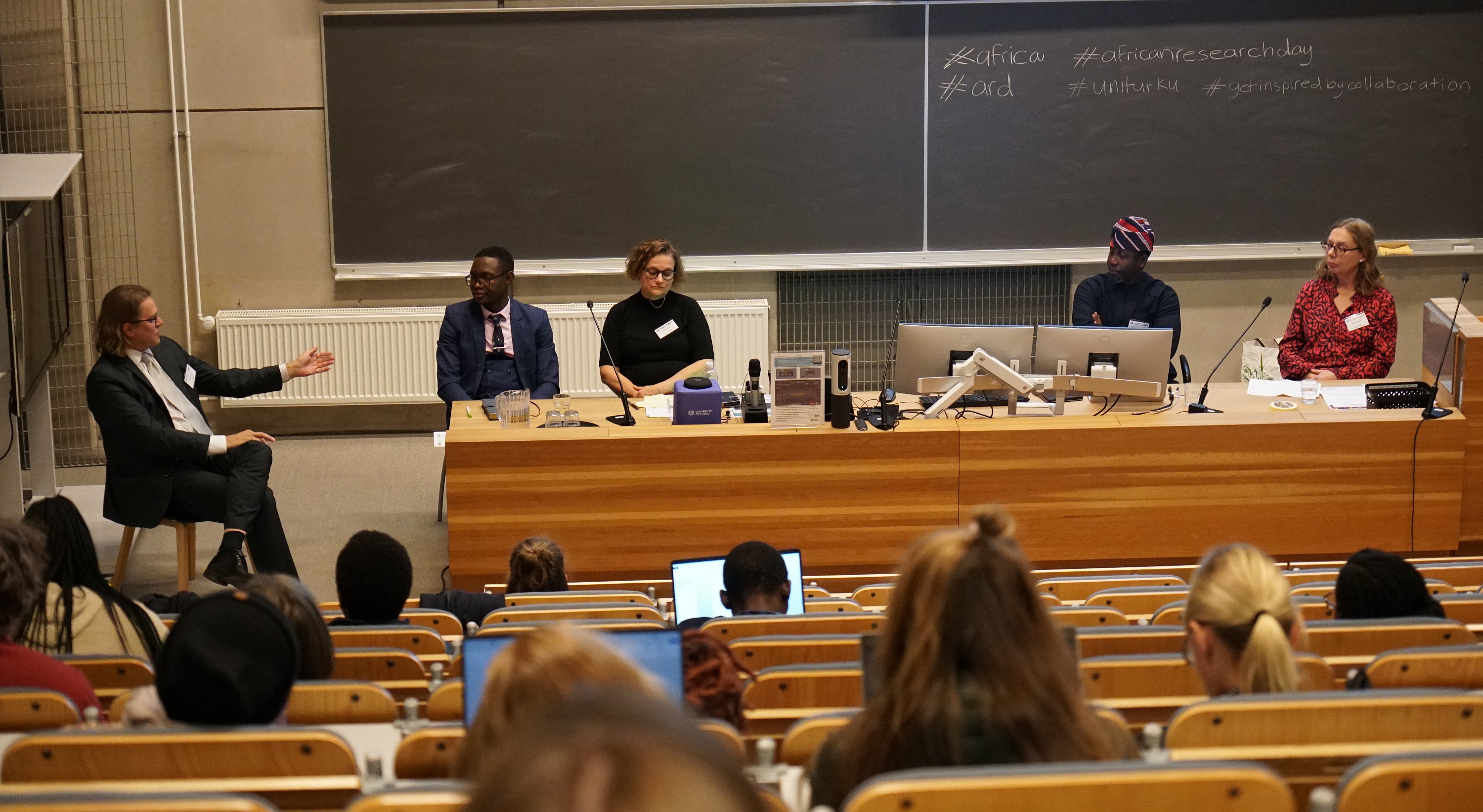
The panellists also discussed about the challenges of creating guidelines for collaboration, the need to engage communities in collaborative projects and initiatives, different ways to ensure local ownership, and the role of research ethics in promoting greater equity in global collaborations. Many panellists pointed out that the so-called helicopter research or parachute science where researchers from more privileged northern countries carry out research in less privileged southern settings with limited or no involvement of local communities is a very dated and ineffective way of doing research.
In terms of collaboration between African countries and Finland, the panellists mentioned that the Finnish science policy should acknowledge international collaboration as crucial in solving global issues but what is needed is a research-specific approach to collaboration rather than Africa or Global South -specific approach. In addition, the willingness of people to work together is very important and the signals of non-funded collaboration initiatives should be acknowledged.
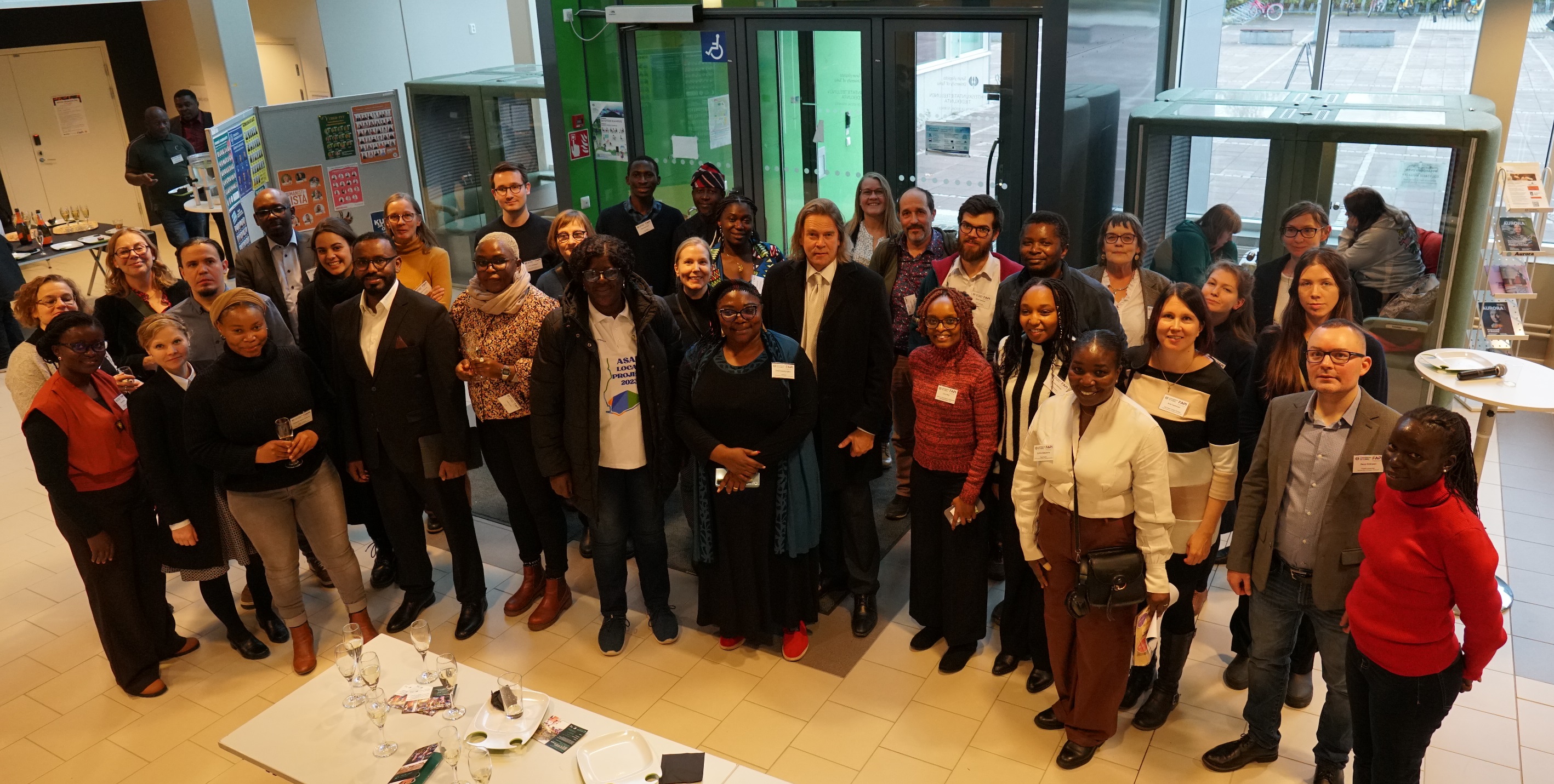
The Collaboration in Research and Education seminar was organised by the Finland-Africa Platform for Innovation (SDG 9) (FAPI) which is a network composed of 26 Finnish higher education institutions and coordinated by the University of Turku. The aim of FAPI is to advance the United Nations Sustainable Development Goal 9 in Africa by promoting innovations together with African partners. With this in mind, FAPI promotes multidisciplinary, innovative collaboration between higher education institutions and other actors in Finland and in Africa. Other organisers of the event included the Global Innovation Network for Teaching and Learning (GINTL), EDUCasePlatform, SAFINET and DIANA ry.

